|
I wrote an essay about W.E.B. Du Bois and Martin Luther King Jr., titled Race, Religion, and Radicalism: King and Du Bois. If you want to expand your knowledge of both men, this piece here is worth reading.
0 Comments
I accepted an invite to be the Annual William Lloyd Garrison Lecturer of 2021, which is tentatively slated to take place at Old South Church in Boston. This white brotha, who was a great abolitionist, was a 19th century white anti-racist. My message will challenge 21st century white folks to be anti-racist, as many continue to claim they are "Not Racist."
Do you know this list of young girls?
Denise McNair Addie Mae Collins Carol Robertson Cynthia Wesley Today social justice activists frequently remind us of Black victims who have suffered at the hands of white supremacists. We have grown accustomed to folks reading old names and adding new names to the list, such as George Floyed and Breonna Taylor. Today in 1963—at the 16th Street Birmingham Baptist Church, Black social justice activists were accustomed to reading a list of names of Black folks who were murdered by white supremacists. You know the list of folks as the four little girls. You see, much like the elephant, society was built to exclude them. Instead of restructuring their homes, these girls would not live to see 15. My Mom was living in Selma, AL at the age of 12 when this happened. Their lives were cut short because segregationists despised the aspirations of Black people to vote, receive an education, own a home, protect themselves, and receive a fair treatment in courts. They died because they were at church that morning desiring to be a better person. I was reminded by my calendar of the ubiquitous nature of white supremacy. Then my Mom called asking if I knew what today meant to her; I failed my Mom because she had to remind me. I did not share my Mom's story with you--this story. It is important that you know this story; it changed how she saw the world, and how she raised her sons. The poet Langston Hughe’s told us that, Four little girls Who went to Sunday School that day And never came back home at all But left instead Their blood upon the wall Just three weeks before the bombing, MLK stated in his epic speech at his famous March on Washington D.C., that he had a dream of a day when little Black boys and Black girls will be able to join hands with little white boys and white girls as sisters and brothers. Weeks later King attended the funerals of these four little Black girls; he had to explain why these little girls would never hold hands with anyone again. He had to explain why they were martyrs not for the content of their character but for the color of their skin. “Why did God make me an outcast and a stranger in my own house?” W.E.B Du Bois exclaimed in his essay, Of Our Spiritual Strivings, as he pondered being a problem: a seventh son after other civilizations. The Negro watched Indians, Romans, Greeks, and Mongolians take a position of authority over the simple Negro. This white world reminded the Negroes of their inferiority, yet promised them a place with God if they behaved. And though early playground rejections would impact his later pathology toward Negro radicalism, it was his sense of understanding that equality in America could be achieved, though by his death, Du Bois concluded America was not ready for the Negro.
Du Bois shaped this double-consciousness as a sense of racial awareness and the veil; it was within this metaphorical Veil that Black people faced oppression. In order to deal with oppression and themselves as a race, Negroes must become aware of the Veil. This point seems silly in that who would be unaware of their oppression; however, Du Bois speaks to years of Jim Crow, sharecropping, and tenant farming in which the Negro’s labor and welfare were exploited. Du Bois’s Veil was expressed in the literary piece, Invisible Man; here, Ralph Ellison introduces the American conscious to a Negro mind that becomes aware of why he was oppressed. This declaration was made after Ellison and a white man accidentally collided on the streets of New York. As Ellison sought to help the white man up, he screamed nigger at him; in a sense of frustration, Ellison reached for his knife to stab the man. It was at this moment the Veil was lifted; he knew he was an invisible man. White society. Du Bois and other Black actors sought to challenge the normative process that white America could shape the Negro into a proto post-American slave. I am speaking to a crowed about Radical Love and what is needed in our current age; I got to hang at the rally with this dope sista, while keeping it real on a mucho cold day with Green Party presidential candidate Jill Stein.
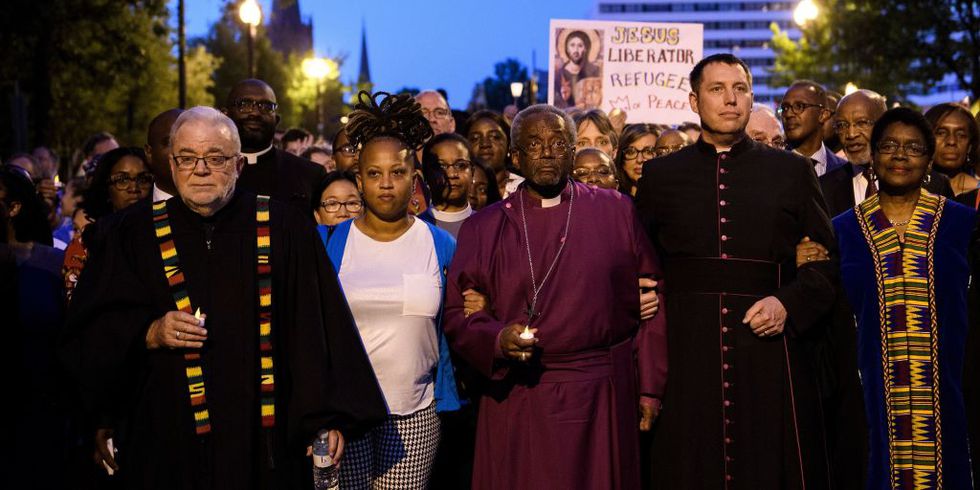 There are those standing up for their faith — and truth, and not the idolatry of politics as God. Bishop Curry, who stated that “…. We are Christian leaders bearing moral witness to the teachings of our faith in the public square…. As citizens we want our government to reflect our values. As a Bishop I believe we should follow the teachings of Jesus — who taught us to love God and love our neighbor…. The normalization of lying presents a profound moral danger to the fabric of society. We believe authoritarian political leadership is a theological danger that threatens democracy and the common good — and we will resist it.”
In truth I have recently come to know of him; however, since I have watched him protest in front of the White House demanding justice and advocating for human rights. I am one who hates complacency. I have committed myself to defending the weak: homelessness, marginalized, etc. Let us dedicate each and everyday to being better humanists. “Of all the forms of inequality, injustice in health care is the most shocking and inhuman.” Dr. Martin Luther King Jr. “When we speak, we are afraid our words will not be heard or welcomed. But when we are silent, we are still afraid. So it is better to speak”. Audre Lorde In high school, when I became intellectually conscious of the color line, and the binary conditions that set my family, the have nots, apart from the the haves, I paraded the interracial change agents I admired to anyone who would listen. Pondering the motives that divide people, I found then a home in my ideals of radical love. A frequent reader of W.E.B. Du Bois, who proclaimed “the problem of the 20th century is the color line” to my misguided comprehension of Joseph Conrad’s complex fictional character Jim, and Richard Wright’s Bigger Thomas— I fell in love with the oppressed and the underdog. I suspect that is why we love fictional Rocky Balboa or Shirley Muldowney, the first woman of Drag Car Racing, and not the haves like fictional Ivan Drago, or the mean kids in the movie, Karate Kid. As humanists, we are inspired by our sense of empathy—wanting to see our better selves in others, as they triumph through struggles. Since high school, I have made it my life’s ambition to remain with the have nots, though I have benefited from the sacrifices and compassion of my working class parents. Both who endured their economic and racial conditions of the deep South, only to marginally usurp the barriers of classism, racism, and the caricatures of Jim Crow America. Much like the miracle on ice narrative, they too triumph. As humanists, here in the age of the Coronavirus, we are positioned to have compassionate emotions. With crisis comes empathy, particularly when it takes a stand where we are, from within the perspective of our most significant concerns. Rousseau, an 18th century French philosopher, articulated our commonality by expressing how nobles of France lacked compassion for the lower classes because they “count on never being human beings”.[i] His articulated point is often felt by those who lack the human necessity and compassion to see people as human—while we must see each other as nothing less than human, by acknowledging the beauty of our differences: Race, ethnicity, class, gender, and sexual orientation. It is therefore the knife that unknots and allows the most ubiquitous formulation of all: Community. Community and our sense of it is what makes it truly ubiquitous. As I recently noted in a talk I gave to a large Unitarian Universalist church in Newburyport, both individuals and communities matter. We must let people tell their own stories, and in doing so—we must not interpret their story for them. We must listen for criticism, but also listen to perceive resilience, beauty, faithfulness, dignity and forgiveness. These are the building blocks for any true community. As humanists, we must further receive the echoes of Audre Lorde. Therefore, we must speak. We must speak using a love language that conveys community—but we must not drown out the silent. By walking alongside our neighbors, regardless of race, class, gender, or sexual orientation, we have moved from talk to the direct action of caring. Martin Luther King, Jr. invoked his voice by demanding that people see the weak, homeless, oppressed, sick, and vulnerable in society. Humanists cannot exist on an island—nor in isolation. Humanists have the capacity to build communities regardless of the barriers put in place. We hear a great deal about the cruelty of those who name call, promote hate, and target populations because they are “perceived” to be blamed for Coronavirus. As a community of humanists, we are obligated to participate in a reductionist approach to addressing such vice and ills that are often inculcated into the fabric of human societies. Intergroup cooperation and an individual desire to educate him/her/they on multicultural practices is a start. In conclusion, each member of a community must always seek to answer the following questions:
Notes [i] Martha C. Nussbaum, Hiding from Humanity: Disgust, Shame, and the Law, (Princeton: Princeton University Press, 2004), pg. 51. [ii] Caprice Hollins and Ilsa Govan, Diversity, Equity, and Inclusion: Strategies for Facilitating Conversations on Race, (New York: Rowman & Littlefield Press, 2015), pg. 56. Pictured here in the first week of March, I am joined by my student diversity coordinator and our Gender Sexuality Alliance leaders, as well as Alex Myers, whom I invited to campus to give an all campus talk on American Masculinity. This was followed by a full day of workshops he delivered on LGBTQ+ topics. Alex is a transgender male, a leading transgender activist, and faculty member at Phillips Exeter Academy.
Black thought and Black Studies ponder the realities of modern colonial aims. In my readings of CLR, Du Bois, Hall, hooks, Collins, and so on — I too am forced to glance and consider my identity and the identities of others. In the end, this is what academics do as we contemplate 21st century realities. Often such are predicated by past actions. My reflection here is nothing new, nor is it revolutionary. But, it is a baseline for conversations. Can Black people be Black in a world seen through the lens of the white gaze? Must Black people code switch to allow white comfort? What about women and their day-to-day reality in this patriarchal world? Women of color face the greatest threat as they are faced with challenging multiple systems. Such systems (the aggressor) aim to frame women — but particularly women of color in a powerless state. The notion of domination has been in constant operation and on my mind. That sense of abject reality for me as a Black man who will always be dominated by whiteness. My intersectional privileges allows for some fortitude (I am male), but the other half of me — my Black self — has and will continue to be imprisoned by the power structure of race (I am Black). This white gaze that decides my fate is the constant narrative of a ubiquitous force that pits Black people against Black people. Hence — Black intra-racial alliance is a myth. Black folk suffocate because of fear. Often this is due to domination and insecurity. Black ally ship might not wholly exist. The intra-racial dissonance is drafted by white domination (jobs, promotion, health care, debt, retirement, where you live, wealth, relationships, etc). I have experienced this. Many of us have. You know that feeling when a Black person rips your heart apart due to their complicity with domination. This knot in my stomach reminds me of the need for interracial solidarity and working class unity. But it also serves as a reminder regarding who makes decisions. Who holds power? And often, how the power brokers do not always listen. A have no power. I lack the wealth to take care of my Black parents. They lacked the wealth to take care of me. King faced this. Du Bois faced this: A feeing of years of betrayal by Black complicity and silence.
|
AuthorThis blog reflects the views of a soul brotha who believes in radical love. I must confess a love for Black & brown folk, gay folk, bi & transgender folk, Asian folk, non-binary folk, and my white allies. Archives
February 2023
Categories |
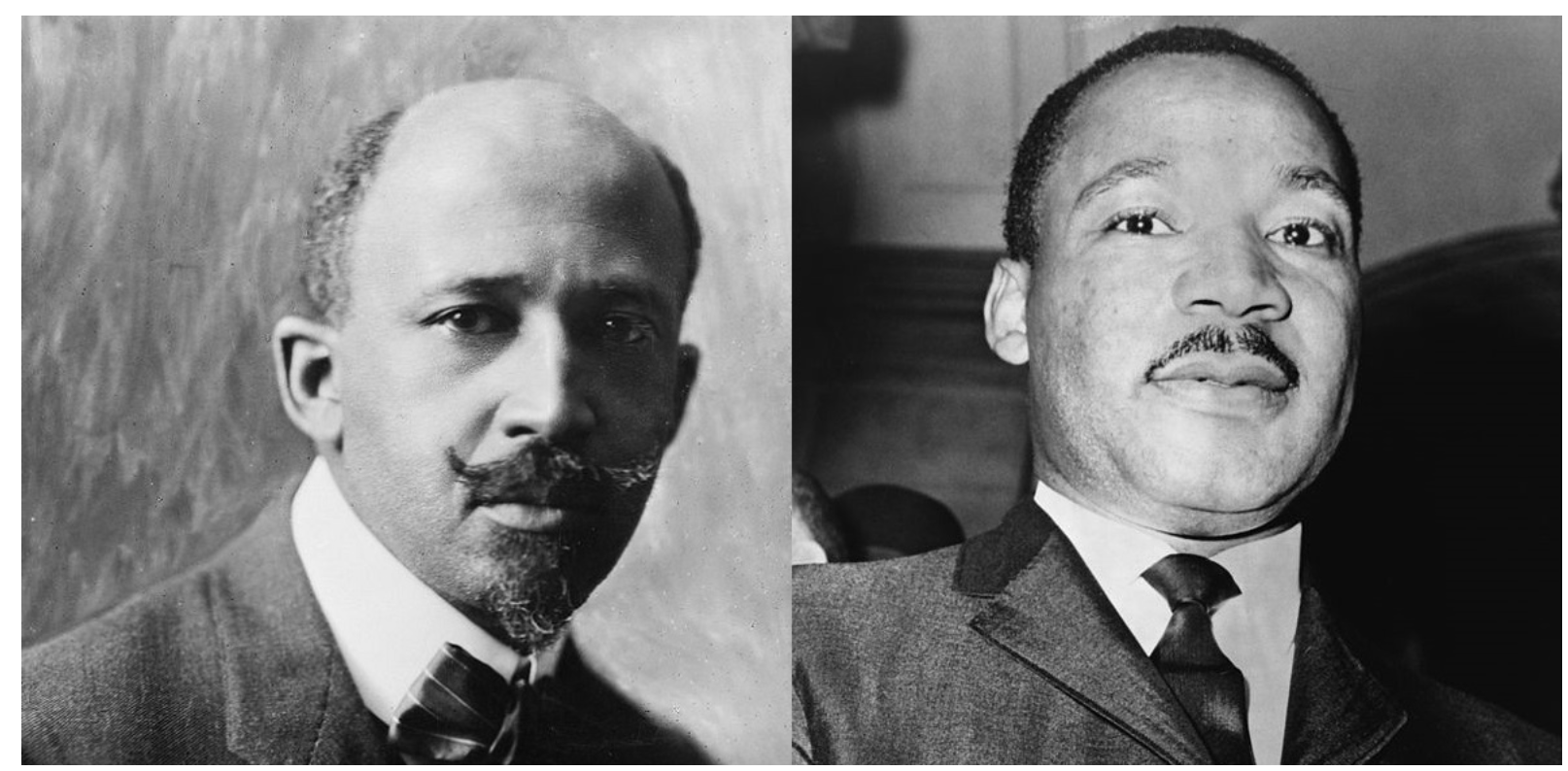
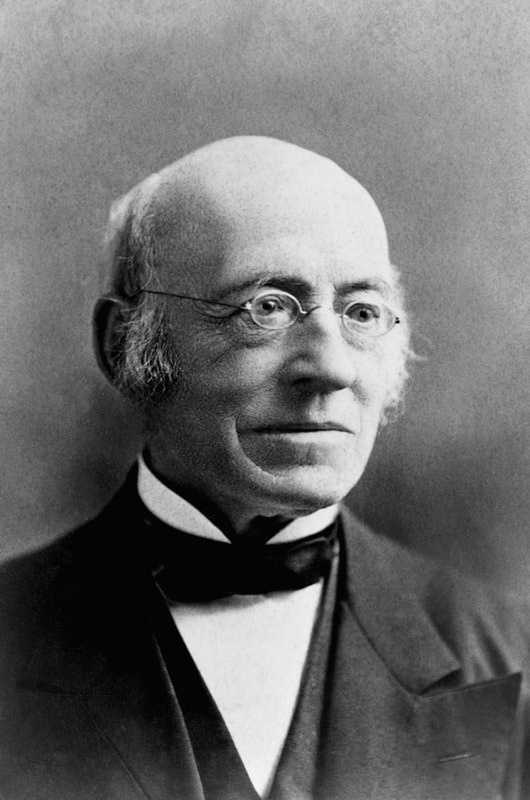
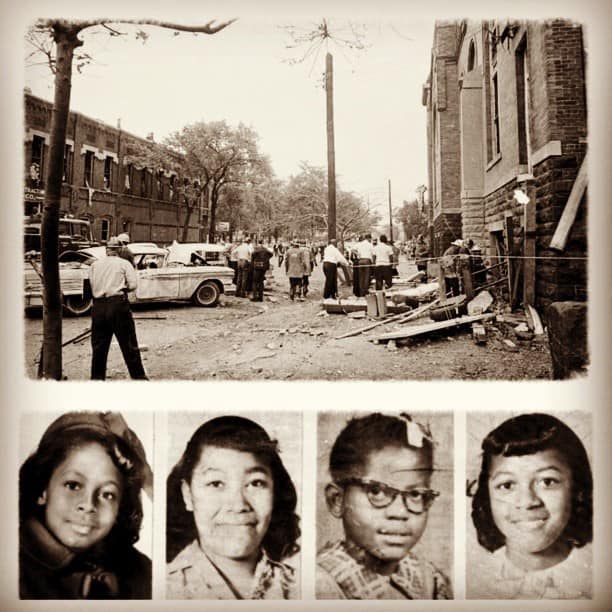
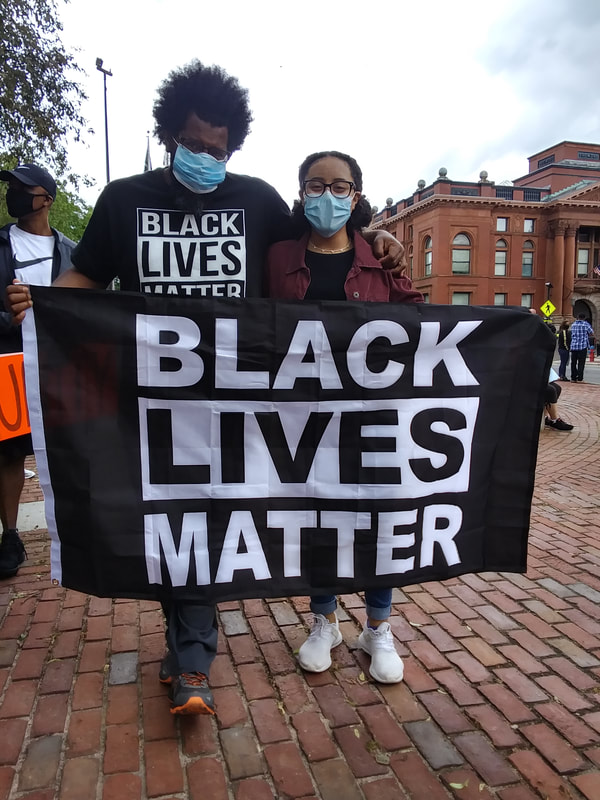
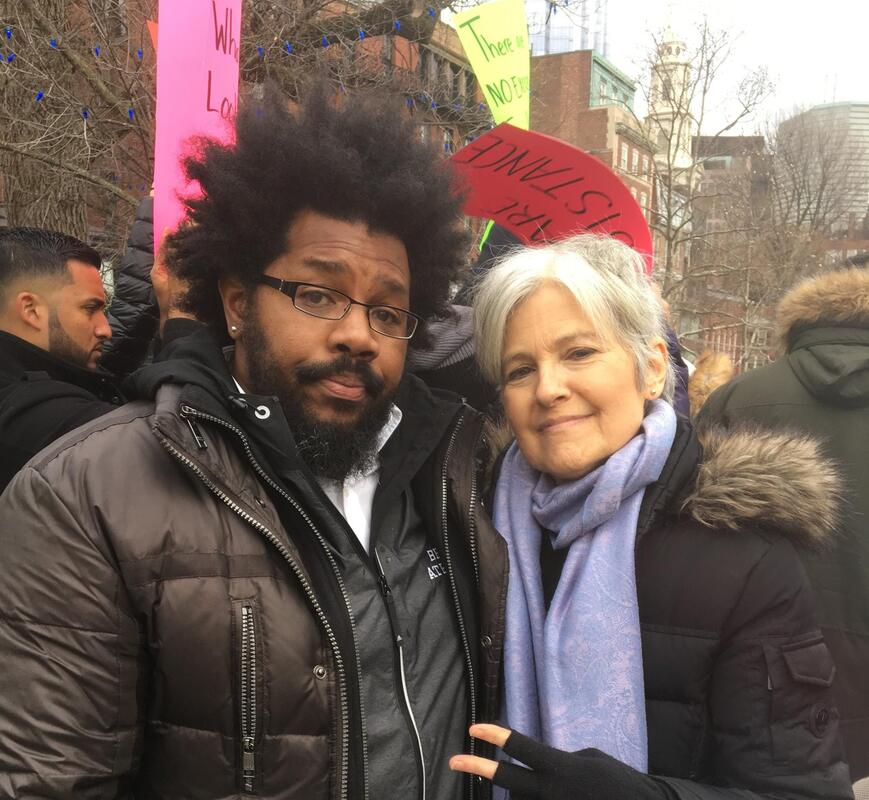
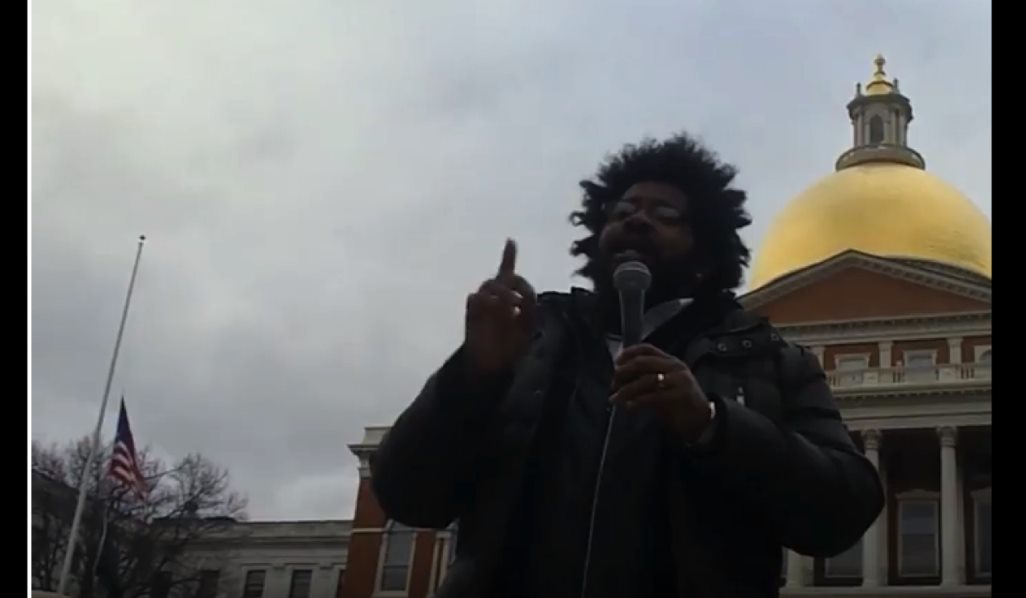
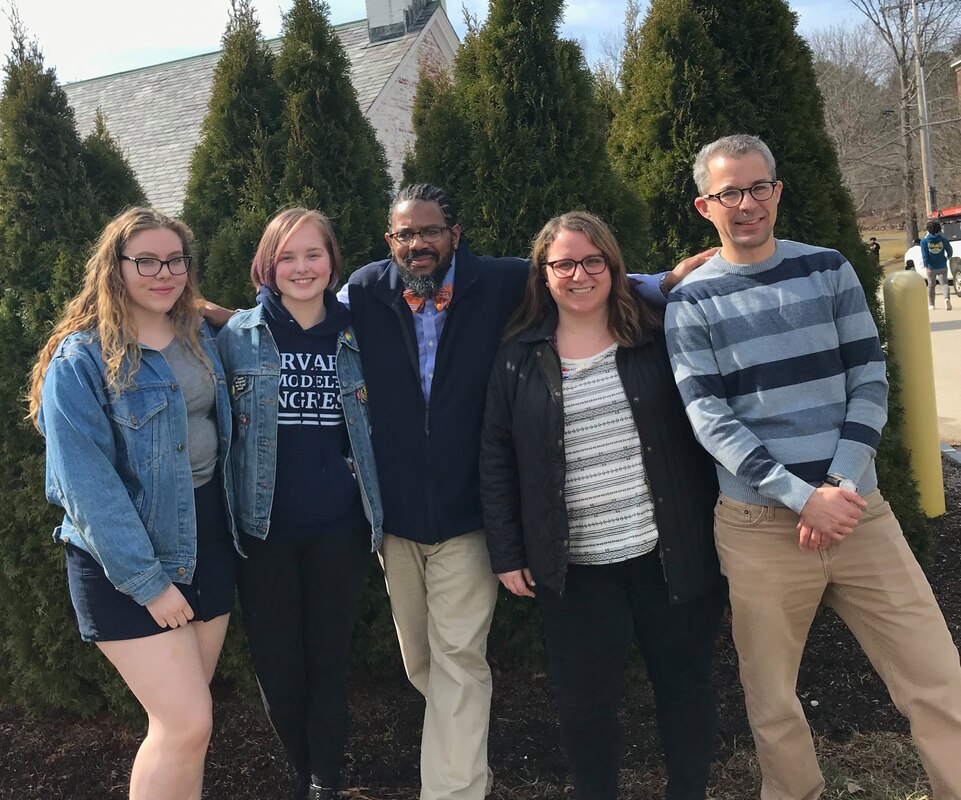
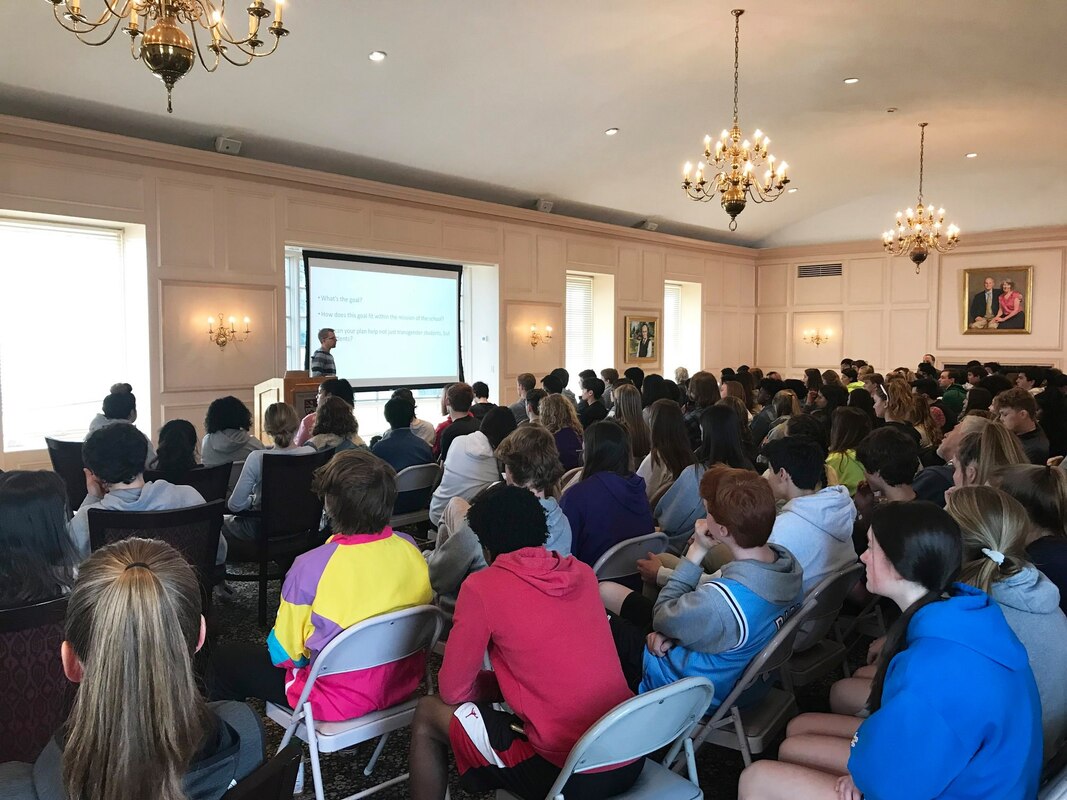
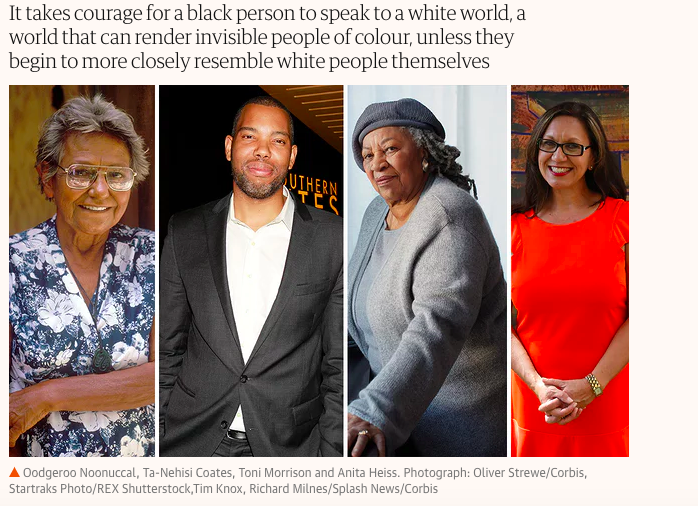
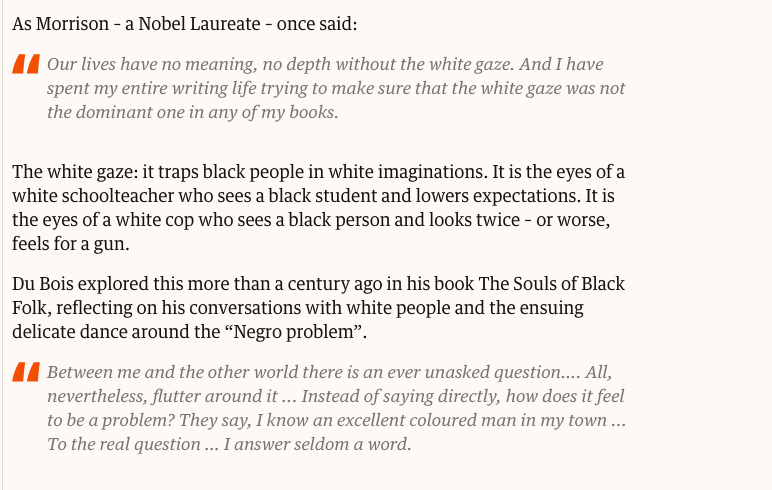
 RSS Feed
RSS Feed